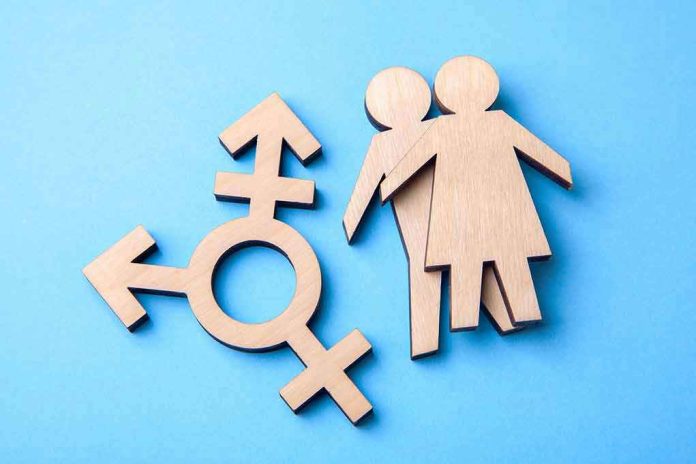
The International Olympic Committee’s potential ban on transgender women from female events is causing a stir among sports and political communities alike.
Story Highlights
- IOC considers banning transgender women from female categories in the Olympics.
- Debate centers on fairness, competitive integrity, and inclusion.
- Pressure mounts from national sports bodies and political entities.
- New policies could set global precedents impacting sports policy worldwide.
IOC’s Evolving Stance on Transgender Participation
The International Olympic Committee (IOC) is reportedly considering implementing a blanket ban on transgender women competing in female categories at the Olympic Games. This move marks a significant shift from its prior stance, where policy details were left to individual sports federations. The development comes amidst growing concerns regarding fairness and competitive integrity in women’s sports, with national sports bodies and political actors weighing in heavily on the issue.
In recent years, international federations like World Athletics and FINA have enacted stricter eligibility rules for transgender women, citing scientific studies suggesting retained male puberty advantages. This has fueled the debate over inclusion versus fairness, a topic that has seen increasing legislative action in countries like the US and UK. The IOC’s decisions are influential, often setting precedents that shape global sports policy.
Stakeholders and Motivations
The primary stakeholders in this evolving situation include the IOC, international sports federations, transgender athletes, women’s sports advocacy groups, human rights organizations, and national governments. Each has distinct motivations; the IOC seeks to balance inclusion and fairness while maintaining global legitimacy. Federations aim to ensure competitive integrity, and advocacy groups focus on either protecting women’s sports or championing transgender rights.
National governments, particularly in the US and UK, have taken public stances, influenced by public opinion and political pressures. The balance of power lies with the IOC, yet it faces considerable influence from federations, governments, and public sentiment.
Impact and Implications
The potential ban could have significant short-term and long-term implications. In the short term, it would result in the immediate exclusion of transgender women from female Olympic events, likely leading to legal challenges and protests. Long-term consequences could include setting a precedent for other sporting organizations and potentially deterring transgender participation at all levels of sports.
Economically, the IOC’s decision may influence sponsorship and funding, depending on public and corporate responses. Socially, it could intensify debates on gender, fairness, and inclusion. Politically, the move could contribute to heightened polarization, with governments and political parties taking clear, and often opposing, stances.
Sources:
White House Executive Order, February 2025: “Keeping Men Out of Women’s Sports”





